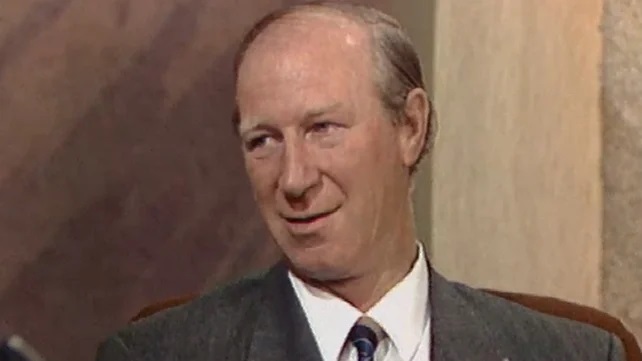Jack Charlton was an instrument of understanding and reconciliation in frayed Anglo/Irish relationships, recalls Fr Bobby Gilmore.
The appointment of Jack Charlton as manager of the Ireland soccer team in the early 1980s was received with mixed opinion. People were asking what an Englishman had to offer a national team of a country that he knew little about.
However, accidently, I happened to visit Ashlington the town where Jack was born and reared. It could have fit into any rural town anywhere in Ireland.
I came to the conclusion after a day wandering around the area, listening to local people discuss the issues of the day in friendly conversation and banter that Jack would have little difficulty in understanding what made the Irish tick. Their accents ways of seeing and speaking were a world away from the impersonal indifference of London.
Jack took the job. He pulled on his footballing experience at the top level in club and country. His affable and approachable personality chimed with the casualness of Irish everyday life. It was a difficult task in that it involved getting to know the talent available to him in forming a team, most if not all would be in the Diaspora, with national pride, ambition and a winning attitude.
This task implied attending football matches all over Britain in which Irish players were involved. That he did with his management team.
Gradually, success against other international teams began to happen both in friendly international matches, in European and World Cup qualifying matches. Success caught attention at home and abroad in the Irish Diaspora.
His communication with an Irish audience at home and in the Diaspora gradually generated a sense of pride at a time in which the conflict in Northern Ireland flowed over on to British high streets.
This was a time when it wasn’t popular to be Irish in Britain. It was a depressing time for Irish immigrants in Britain who sought to be treated with respect in British society but who were seen as suspect as Muslims are now.
While first generation Irish immigrants understood the cause of the tension generally coped well in dealing with the anti-Irish racism of the period the young second generation born in Britain were under intense pressure in coping with the confusion of the time. Even though born in Britain with Irish surnames they were treated as Irish.
When they holidayed in Ireland with their parents their British accents they were identified as English. In order to fit in and avoid discrimination and bullying in Britain they were inclined to identify with things English and particularly England club and national teams. Generally, they wished to go about life under the radar.
Jack’s coming changed all that. Gradually, a strong support base began to take pride and interest in his dialogue with the British and Irish public as well as team’s success. Here was an Englishman who understood the Irish and British better than they understood themselves.
I became acutely aware of this travelling around Britain in Irish Diaspora areas. One day while visiting an Irish family in the English east midlands I was made aware of Jack’s impact. The father of the family introduced his three daughters.
Then he informed that his wife was gone with their young son to the Irish Centre in Birmingham to purchase the Irish team shirt. This was about one hundred and fifty miles round trip. This was news to my ears.
While I am a promoter of integration into the networks of life where one lives, in the atmosphere of the time this was an assuring moment, an instant informing me that there were young second generation Irish people who in spite of the negativity of the time were able to make up their own minds about who to support while feeling at home where they were.
The father of the young boy informed me that since Jack Charlton took over the management of Irish national team a new pride was welling up in the Irish community.
He had no hesitation in affirming Jack’s role in that. He went further to imply that Jack was an instrument of understanding and reconciliation in the frayed Anglo/Irish relationships. I agreed with that and still do. Very often in times of tension and despair mediators arrive from unlikely sources! The challenge is to discern the contribution they are offering and accept it.
Follow us on Twitter @IrishColumbans

